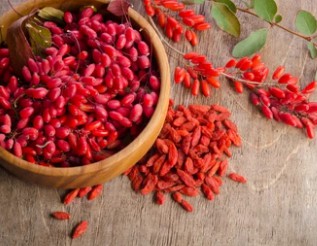Lycium chinense miller, also known as Goji berry, is a multi-branched shrub plant of the genus Lycium in the family Solanaceae, with very important medicinal and tonic values. Goji berry has effects of lowering blood sugar, anti-fatty liver, and anti-atherosclerosis. In addition, it can be used as a hedge in gardens and as a shrub for soil conservation. Traditional breeding has the disadvantages of long cycle times and randomness, which limit the breeding of new Goji berry varieties. In recent years, with the development of molecular biology research, genetic modification has been widely used for Goji berry breeding. Through genetic transformation, we can significantly improve the resistance of Goji berry barbarum and shorten the breeding cycle for targeted improvement of traits.

Lifeasible has developed a proven genetic transformation platform for Goji berry that provides a one-stop shop for trait improvement and regulation, such as enhanced resistance to biotic or abiotic stresses. Our genetic transformation technology is based on Agrobacterium tumefaciens transformation and uses Goji cotyledons as transgenic recipient material. Our experts achieve the introduction of T-DNA into the genome by infiltrating the leaves with Agrobacterium tumefaciens carrying the target gene vector. The target gene is finally identified by PCR for the successful introduction, and a positive Goji berry seedling is selected for you to meet your needs. We have always strived to be your best partner in plant genetic transformation. Our versatile genetic transformation platform for Goji berry can efficiently provide you with agreed positive plants in a short period of time. Regarding the custom vector service, we offer the following genetic transformation methods for you to choose from.

Customers can provide constructed Goji berry transformation vectors directly, and Lifeasible also offers vector construction services.
| Concentration | Volume | Other requirements |
| 80-100 ng/μL | ≥10 μL | no degradation & no contamination |
| Bacterial broth | Bacterial plate |
| Bacterial broth up to 1-year-old, preserved in glycerol | Bacterial plate activated within one week |
*For special varieties and customized services, the experiment time and the number of seeds needed may be increased. For this, please contact our staff for more information.
*Plasmids, E. coli, and Agrobacterium require cryopreservation and mailing under dry ice to avoid degradation, inactivation, and impact on experimental results.
*The strains, vectors, and receptor materials used in the experiment can be saved for free for half a year for customers, and you can pick them up at any time if you need them.
The whole process of the genetic transformation service of Goji berry is staffed by dedicated experts who provide experimental advice, project consultation, process design, and data reporting throughout the experimental process. Our staff will keep you informed when the experiment reaches a critical point in case you miss it. Phase data and result reports will also be provided to you regularly so you can follow up at any time. Our one-stop service will largely ease your research burden and save your time. All you need to do is to submit samples as required.
Lifeasible's experts have comprehensive knowledge and years of experience solving technical problems and challenges in Lycium chinense miller transformation. We can provide customized solutions to help you study a wide range of Goji berry varieties. Our services guarantee the success of your project. For more information or any inquiry needs, please feel free to contact us.